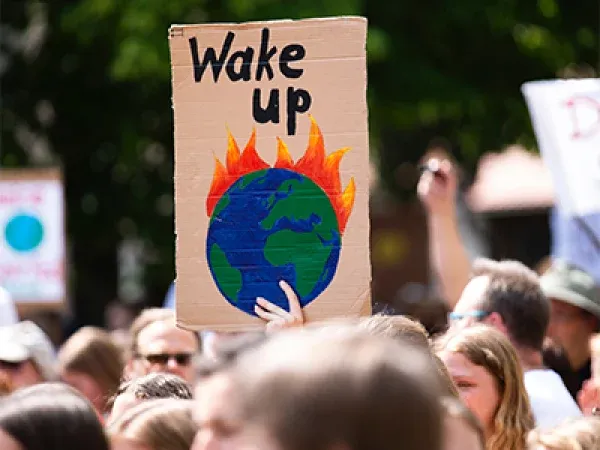Australia and climate change, the last warning
NEWS
Do not miss the news from the Gabel world: discover all the goals achieved by our company, the events, the collections in store and online
Australia and climate change, the last warning

The fires that have been devastating Australia for months are dramatic, unacceptable and push us to a profound reflection: can we really continue to live regardless of the environment received as a gift?
FIRE IN AUSTRALIA: AN UNPRECEDENTED DISASTER
The number of victims amounted to 26, more than 12 million acres in Australia were burned by over 200 fires that devastated the continent, recording the most serious evacuation in the history of the country: over 100 thousand displaced people between residents and forced tourists to escape. The damage to the Australian territory and ecosystem is invaluable: almost half a billion animals have died in recent months.
Fires (caused in most cases by the malicious action of "man") are very common during the summer, fueled by low humidity, low rainfall and torrid temperatures (well above 40 °). Only a couple of weeks ago Australia recorded average temperatures of 44 degrees, very high if you think about past years: an increase caused largely by climate change.
The number of extreme hot days in Australia has increased, according to Nature magazine, from almost zero in the period 1910 - 1920 to an average of 15 per year in the following decades and the average temperature has increased by 3 degrees Fahrenheit in 100 years. Climate change has done nothing but increase the probability of a catastrophe like the present one: fires in the last 40 years have been more and more numerous, especially in the south - east of the country.
The unprecedented climatic conditions that triggered the fires are therefore the consequence of a meteorological problem intensified over the years by the overheating of the earth. The situation is destined to worsen and for those who, like the Australian Prime Minister, Scott John Morrison, do not yet believe in climate change, it is a fact to be taken into consideration. The Climate Change Performance Index (CCPI) 2020 indicates the Australian country at 56th position out of 61 in the general classification, assigns the worst score (equal to 0) in the evaluation of climate policy.
THE LAST IMPERATIVE: RESURRING WITH ENVIRONMENTAL POLICIES AND CHOICES
What is happening is unacceptable: a radical change is needed immediately by individual national states and international organizations towards environmentally sustainable policies that respect our fragile ecosystems. All companies (larger or smaller in size) must then engage in choices of strong discontinuity with respect to the past: continuing to pollute, with the myth of unbridled and uncontrolled production, will not lead to general enrichment, but to impoverishment and devastation without previous.
Consumers must also be well aware of the power recognized to them: it is only through their choices that the wind can change. Rewarding eco-sustainable companies means encouraging the green economy that respects our ecosystem: it is on them that our future depends.
For years, Gabel Group has shown itself to be attentive and sensitive to these issues, like no other company in the panorama of home textiles and household linen: we have therefore chosen to use only 100% renewable energy for all our plants, trying to impact the less possible in the territories in which we produce (the entire production is located in Italy), for over 20 years we have launched a collection, Naturae, which uses only natural, organic, raw and undyed fabrics, an entirely plastic free packaging and we can boast of certifications that attest to our sensitivity and attention to environmental issues (most recently, STeP).
The point of no return is near, the Earth does not need us. We are on the brink of the abyss: either we rise as human beings, with new ideas and policies that are respectful and in harmony with creation, or we will be destined for a future of climate change with incalculable proportions and harmful consequences.
We at Gabel are ready, are you?








